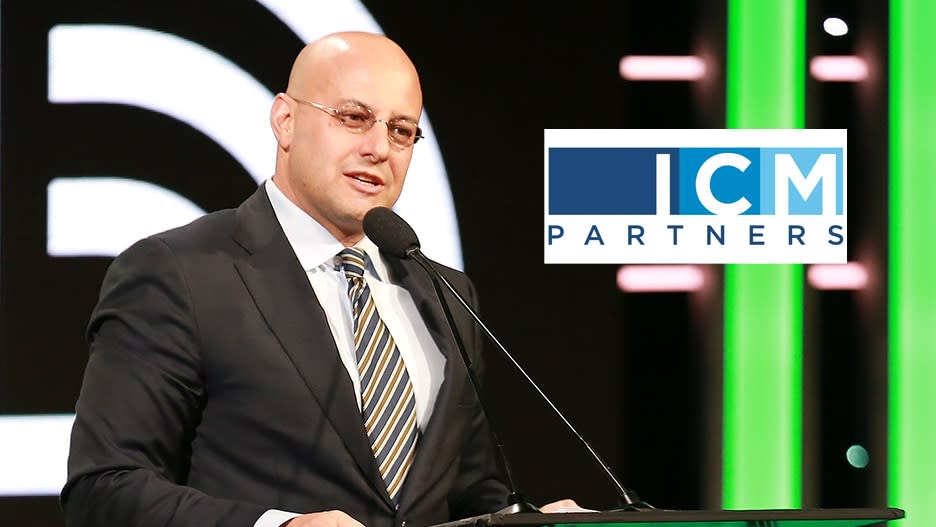Inside CAA’s $750 Million ICM Acquisition: What the Supersize Hollywood Agency Gains (and What ICM Loses)
With the dust settled and CAA finally closing its $750 million deal to acquire ICM Partners on Tuesday after a wait of nearly 10 months, a picture is becoming clear of just how much CAA is gaining from its acquisition — and how much of ICM is being left behind.
Entire ICM departments will be significantly shaved or eliminated as part of the acquisition, including branding, independent film, unscripted TV and a solid chunk of the music department — with a total of 105 staffers expected to be pink-slipped, all from ICM. Exiting agents include the head of ICM’s unscripted TV department Michael Kagan and independent and international film head Jessica Lacy, insiders said.
The branding department in particular had roughly 15 to 18 agents at the beginning of the acquisition, an individual with knowledge of the inner workings of the talent agent industry said, but now only three or four remain in the building after a wave of agents in that department as well as others have joined rival firms, become managers or exited representation altogether.
ICM’s music department has been disproportionately impacted as well, one insider added, with many booking agents finding themselves redundant with CAA’s existing music staff — and either not being made offers or not sticking around long enough to learn their fate.
Also Read:
CAA Partners Vow to ‘Double Down’ on Talent Representation With ICM Acquisition
What does that leave? With the exception of those who have already exited, many within the last two months, all of ICM’s television and motion picture agents will be invited over to CAA, as will those in ICM’s robust books department, its media rights agents and its sports agents, where ICM represents a large number of top soccer stars following its 2020 acquisition of the London-based sports agency Stellar Group. Some of those agents and more of the top ICM leadership, such as head of talent Lorrie Bartlett, struck deals to join CAA as far back as September when the acquisition was first announced, multiple individuals said. And CAA will naturally bring over some of the TV industry’s top writers, including Shonda Rhimes, Vince Gilligan and comics like Ellen DeGeneres and Chris Rock.
But that still leaves a lot of agents on the streets. Motion picture agent Christina Bazdekis, who represents Sofia Coppola, is now at UTA. Jeff Barry, a hybrid film and TV agent, has landed at Range Media Partners. Agent April King, who reps Janelle Monáe and Daveed Diggs, is now at WME. And insiders added that other agents like Katie Cates, Daniel Cohan and Chris Von Goetz are also unlikely to make the transition to CAA.
In fact, Endeavor CEO Ari Emanuel last September made a joke at CAA’s expense, saying that what his rival bought was “five incredible TV writers… a very good book business and a very good soccer rep business out of Europe,” and some have even wondered if 10 months later whether that remark turned out to be accurate.

“[It’s the] same as when it was announced 10 months ago. With the exception of a handful of ICM talent and lit agents, ICM will be entirely gone other than books, sports and [below the line],” one agent not connected with either CAA or ICM Partners told TheWrap. “It’s now three behemoths and everyone else in the agency world… it means the rich get richer.”
“I really liked ICM. I think they worked really hard, and it’s a big blow that they’re going to be gone,” one manager added. “They’re not folding into CAA, they’re being gobbled up and they’re spitting out 80% of it.”
CAA and ICM didn’t respond to requests for comment for this piece.
Multiple insiders described morale at ICM as low over the last few weeks and months, with a lot of anxiety and uncertainty about what’s next, particularly for those in departments that don’t bring in revenue or have A-list clientele.
“There’s nothing worse than this kind of limbo, and you’re dealing with an entertainment business that now feels like it’s going into a recession. Everybody is anticipating retrenchment. It conspires to create a perfect storm of anxiety, and I absolutely don’t envy anyone going into this,” Stephen Galloway, dean of Chapman University’s Dodge Film School (and an ICM client), said. “Why would CAA take the areas where it’s dominant and then bring in the ICM people where it’s not an expanding economy? If it’s a retrenching economy, you cut back.”
Also Read:
Former WME Agent Adam Venit’s Ex-Wife Sues for Assault and Domestic Violence
Such cuts are hardly unheard of following major entertainment mergers, as happened after WMA merged with Endeavor in 2009. Much of that downsizing occurred after the acquisition had already been completed. But the long gestation period on this deal allowed agents more time to line up opportunities elsewhere, particularly as the representation business has evolved and shifted over the last decade.
Formal offers from CAA to many ICM agents didn’t go out until May, and insiders described many agents as still being blindsided by the process and having little idea up until earlier this month whether they would be invited to stay or what their deals would look like. Some then had the rude awakening to offers described as substantially lower than their current ICM salary — a move one manager called “disrespectful” to veteran agents who have been in the industry for decades.
Some veteran agents, even with great clients, were offered one-year deals instead of longer-term contracts, according to an individual at a production and financing company.
However, multiple insiders also chalked up some of the discrepancy in offers to a difference in how both CAA and ICM compensate employees, with CAA offering lower base salaries and larger bonuses and backend pay.

Some ICM agents have voiced their frustration to ICM head Chris Silbermann, with multiple individuals describing staffers’ anger and anxiety over how the initial deal was handled, seemingly in secret.
Silbermann, who will be joining CAA’s shareholders board, has made calls and recommendations in recent weeks to help some ICM agents land elsewhere, according to one individual with knowledge of the talent industry. But others have complained that Silbermann has been less helpful to some ICM who had hoped to make the jump to CAA.
But some industry veterans noted that there are limits to how much Silbermann can advocate to retain current ICM agents at the new firm. “How many people can you recommend?” Galloway said. “Who are their clients? What’s the revenue stream? It’s really simple. How much money do you bring in? They look at the bottom line.”
And many in the industry expressed admiration for how Silbermann has managed the transition — and for agreeing to the acquisition in the first place. “If you work at ICM; they hate him. If you’re an outsider or look at it from a macro view, he’s astute and [correctly] anticipating that ICM will be unable to keep up with CAA, WME, UTA in the coming years,” the rival agent said. “So it was sort of an ‘If you can’t beat them, join them’ decision.”
Still, the supersize agency will face challenges to integrate the staff and cultures of two very different firms — with ICM personnel bearing the brunt of it. “When you move into a new company, guess what?” Galloway said. “They don’t adapt to your culture, you have to adapt to theirs.”
Also Read:
No M&A for UTA? Why the Agency May Buck Hollywood’s Consolidation Wave
Those who spoke with TheWrap agree that ICM leaves behind a “very complicated legacy,” one in which the agency was once one of the major players in the industry but has merged and consolidated on its own to the point that as a company and brand, it lacks the same storied Hollywood history of a William Morris Agency or even CAA.
But while some also lament the constant consolidation of entertainment behemoths across Hollywood, there’s hope that the outgoing talent agents can help drive more to become managers and create more opportunities for more clients.
“I’m hoping what this does is strengthens the middle class of agencies. The APAs, Gershes and Paradigms, they have the ability to actually hire, hopefully, some of these other agents. This town is not just run by WME, CAA and UTA and these working class actors can still have a home,” the manager said.
Umberto Gonzalez contributed to this report.

 Yahoo Movies
Yahoo Movies 
